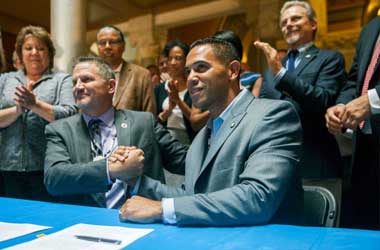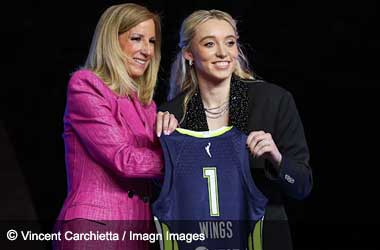 Summary:
Summary:
- The Arkansas Supreme Court dismissed part of a lawsuit challenging a ballot measure aimed at revoking a license for a planned casino.
- Unanimous votes went against claims asking for the measure to be disqualified because of alleged signature-gathering issues.
- The court still needs to decide on another part of the suit challenging the wording of the ballot measure.
The Supreme Court has dismissed part of a lawsuit that contested a ballot measure aimed at revoking the license for a planned casino in Arkansas.
On Monday, the court unanimously ruled against claims that the measure should be disqualified due to alleged violations of signature-gathering laws.
However, the court is yet to decide on a separate part of the lawsuit that challenges the wording of the ballot measure.
Cherokee Nation Entertainment, the recipient of the casino license for Pope County, along with the Arkansas Canvassing Compliance Committee, had filed the lawsuit earlier this year.
A court-appointed special master reviewed the evidence and refuted the lawsuit’s allegations that Local Voters in Charge, the group behind the measure, failed to submit the required paperwork for its paid canvassers.
Additionally, the special master rejected the claim that the group violated a ban on paying canvassers per signature.
Local Voters in Charge, Happy With the Court’s Ruling
Local Voters in Charge, that created Issue 2 with the sole purpose “to ensure that casinos won’t be forced into any local community that does not want one” expressed their gratitude for the court’s ruling. Hans Stiritz, a spokesperson for the group said
Issue 2’s message of local voter control — that communities should have the final say on a casino in their own hometown — is resonating across the state.
We look forward to the court’s final decision on the ballot language challenge, with hope that the vote of the people will be counted on Issue 2 in November.
The group’s work was triggered by “gambling interests” that put an amendment on the statewide ballot legalizing casinos in four counties in Arkansas in 2018, giving the Arkansas Racing Commission the authority to license and regulate casino gambling in four locations, without giving locals the option to vote.
Voters in three of the four counties showed support for the amendment while voters in the fourth one “overwhelmingly rejected the casino amendment”.
Namely, 61% of voters in Pope County opposed it since they did not want a casino to be built in their community.
It’s wrong for people to make decisions about a casino in another county where they don’t live. Issue 2 fixes this problem by ensuring that casinos will never be forced into any local community that does not want them.
writes the group on its website.
Campaign Contributions and Advertising
Advertisements regarding the casino measure have dominated Arkansas’ airwaves, with significant financial backing on both sides.
While the Choctaw Nation of Oklahoma donated $5.6 million to Local Voters In Charge, Cherokee Nation Businesses contributed $2.8 million to Investing in Arkansas, the group that opposes the measure.
Arkansas Canvassing Compliance Committee’s spokesperson, Allison Burum, voiced disappointment with the court’s ruling while emphasizing the ballot title challenge is still an unresolved topic.
Issue 2 is misleading, and its sole purpose is to undo the will of Arkansas voters by eliminating the fourth casino license they approved in 2018
The first two casinos opened in April 2019 at Oaklawn Racing Casino Resort in Hot Springs and Southland Gaming & Racing in West Memphis.
Quapaw Nation of Oklahoma was allowed to build the Saracen Casino in Jefferson County, and the venue opened in October 2019.
In June 2024, at the end of five years of legal challenges and an additional selection process, the Racing Commission licensed Cherokee Nation Entertainment to build the Legends Resort Casino Arkansas in Russellville, with a scheduled opening date for 2026.

 United States
United States United Kingdom
United Kingdom












